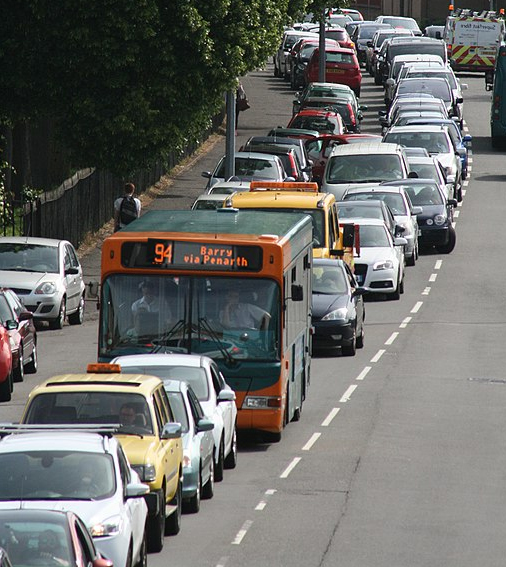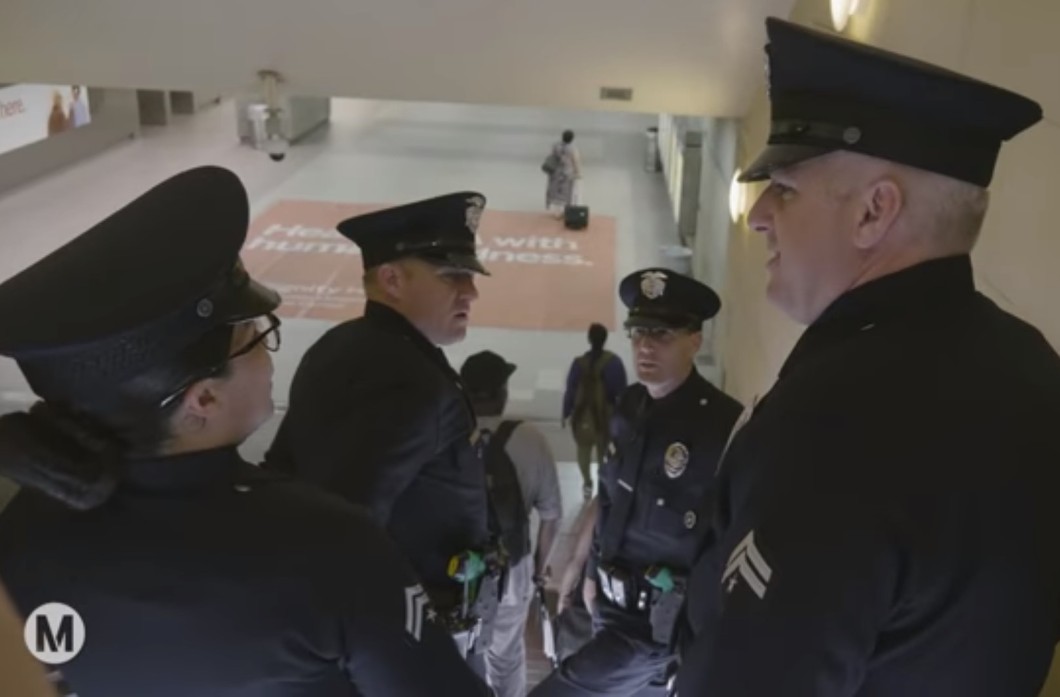Note: GJEL Accident Attorneys regularly sponsors coverage on Streetsblog San Francisco and Streetsblog California. Unless noted in the story, GJEL Accident Attorneys is not consulted for the content or editorial direction of the sponsored content.
This November's ballot is going to be another big one in California. Already there are seven statewide ballot initiatives, and depending where voters live their ballots are likely to have more, including a number that seek to raise or extend existing transportation sales tax measures.
Sales taxes have been a steadily increasing share of transportation funding over the last couple of decades. Local Option Sales Taxes, as they are called, now raise over $4 billion for transportation every year in California.
These are a problematic source of funds for many reasons: for one, they're regressive, in that everyone pays the same tax rate on everything they buy. They are also not directly connected to modes, costs, or wear and tear on the transportation system. Nevertheless, the state of California encourages cities and counties who can muster up the votes to do so, rewarding the so-called "Self-Help Counties" with access to more state funding than places that don't tax themselves.
Yet, these taxes are not easy to pass - the rules are complicated and subject to being gamed. Tax measures for specific uses - such as transportation projects - that are placed on the ballot by government agencies, cities, and counties are subject to a 2/3 voter threshold, which can be very difficult to reach. There are multiple examples of such measures that got just around 65 percent of the vote, barely failing to pass.
Some cities have tried getting around this by proposing a general tax increase and accompanying it with a separate measure that lists what they can use the tax money for. These kinds of general use tax measures only need 50 percent + 1 vote to pass.
Then there are 'citizen's initiatives.' For now, if a transportation or other specific-use sales tax is put on the ballot by a group of citizens, not a government agency, it only needs fifty percent + one of the vote.
All of this makes for a very complicated landscape for raising local transportation money via sales taxes, although nothing compares to the arguments about what should go into the measures. There are wide disagreements between interest groups on what should be funded - freeways? sidewalks? transit? bike lanes? - and how much, if any, each of these should receive.
It's not yet clear how many of these measures will show up on November ballots, but ClimatePlan recently hosted a webinar to talk about some of the ones that are shaping up.
One participant wanted to know why an organization that focuses on climate issues was spending time about transportation funding. The answer is that transportation accounts for more than half of California's greenhouse gas emissions, and the state needs to stop investing in transportation modes that hamper the state's ability to reach climate and environmental goals. Multiple efforts at the state level could easily be undermined if local governments continue to raise money via sales taxes to pay for highway expansions.
And this is what has been happening; on average, Local Option Sales Tax measures invest sixty percent of their funds raised on road projects, and only thirty percent on transit. While not all the road projects are expansions - and in many cases they include some active transportation infrastructure - transit definitely needs more local investment if it is going to work for more people, reduce reliance on driving, and help meet those climate goals.
ClimatePlan's webinar, which has been recorded and can be watched in its entirety, discusses recent experiences in San Diego, Sacramento, and Fresno and Madera counties. By no means the only ballot measures being considered - for example, San Francisco is considering asking voters to extend and approve a new spending plan for its transportation sales tax, Measure K - the stories behind these measures can be useful lessons.
San Diego
Bee Mittermiller and Steve Gelb, volunteers for San Diego 350, describe what they call a "crazy experience" trying, and ultimately failing, to get a sales tax measure on the San Diego ballot. It would have raised the local sales tax by 1/2 cent, and the money would have supported the SANDAG regional plan that emphasizes transit and will require a lot of investment to come to fruition. As a citizens' initiative, "Elevate San Diego," as it was called, would only have needed fifty percent of the vote. It was developed by a broad coalition of business, environmental, and labor groups, and promised "traffic relief" - not by widening freeways but by improving transit.
In the end, proponents did not gather enough signatures for the measure to qualify for the ballot. Mittermiller and Gelb seem to believe this was in part because they hired a company that paid people to gather signatures, which produced faulty results.
They noted that even though it will not be on the ballot, the initiative already garnered "vicious" opposition headed up by failed candidate, failed recall proponent, and failed suspender of the gas tax Carl Demaio, who called it "a massive sales tax by special interests for transit projects no one needs or wants."
Sacramento
Anne Stausboll, former chair of the Mayors’ Commission on Climate Change, talked about the measure that Sacramento voters will weigh in on.
This one, too, is a "citizens' transportation measure," and is also supported by business and labor groups, but it is sponsored by sprawl developers and leans heavily towards funding freeways. It includes $300 million for the Capital SouthEast Connector, a new freeway planned in the rural eastern part of the county to connect several rural and suburban communities.
Stausboll points out that the measure would undermine the region's long-term transportation plan, prioritize car travel, and, according to a SACOG analysis, guarantee that the entire six-county region falls short on its mandated greenhouse gas emission reduction targets if it passes.
"The measure's proponents are well organized," said Stausboll, "and they have done a masterful job of greenwashing it. All the messaging is around climate, air quality, and reducing greenhouse gas emissions. And, since it includes some funding for transit, there is a dilemma for some voters."
Since the measure only needs fifty percent of the vote, this could be a problem. It also highlights the ways the meaning of "citizens initiative" can be twisted by monied interests.
Fresno and Madera Counties
Finally, Olivia Seideman, Climate Policy Coordinator at Leadership Counsel for Justice and Accountability, spoke about several local ballot measures in Fresno and Madera counties. Fresnoland has covered some of the shenanigans that have occurred around the Fresno county measure, including a last-minute substitution of a city council-led measure that the County Board of Supervisors approved with no advance notice.
The final measure approved for the November ballot would shift current Measure C half-cent sales tax funding away from public transit, trails, bike lanes, and sidewalks before the current measure's expiration date of 2027. The city of Fresno, frustrated at their inability to sway County Supervisors to include their concerns, floated the idea of a separate, city-only tax measure, but seem to have dropped the idea in return for greater flexibility on the city's share of Measure C.
Siedeman said that her organization, along with other local advocates, dropped out of the process of developing the measure because "the community engagement was abysmal."
Despite what Seideman says is "widespread community opposition," several similar tax measures have been proposed locally. One, for unincorporated areas of Kern County, is a general service tax that could pass with fifty percent of the vote, but Leadership Counsel is concerned about a lack of accountability on how the money would be spent.
The city of Merced has floated the idea of making its current transportation and public safety tax measure permanent. That half-cent sales tax, which funds the police, fire, and public works departments, would otherwise expire in 2020. The city wants to put it on the November ballot because polling shows it is likely to pass.
There are likely to be more transportation sales tax measures on this year's ballot in California. If you know of others, please add them in the comments below. Streetsblog will be following their development in the months leading up to the November election.






